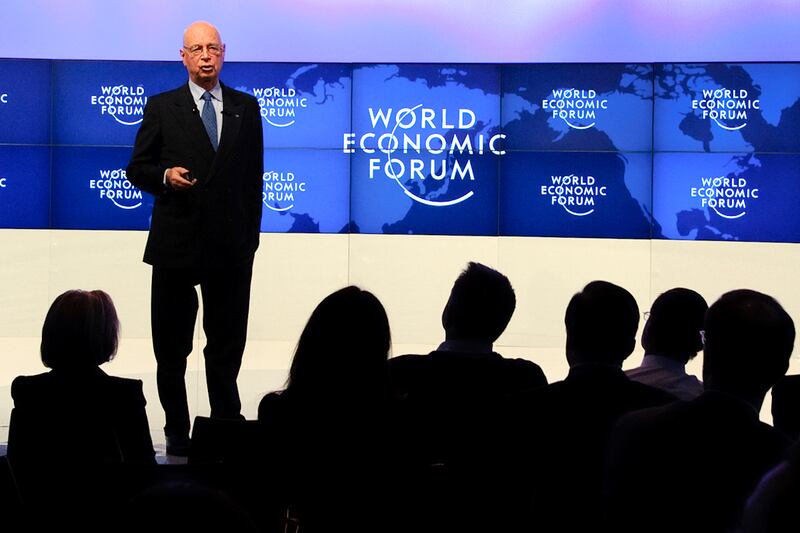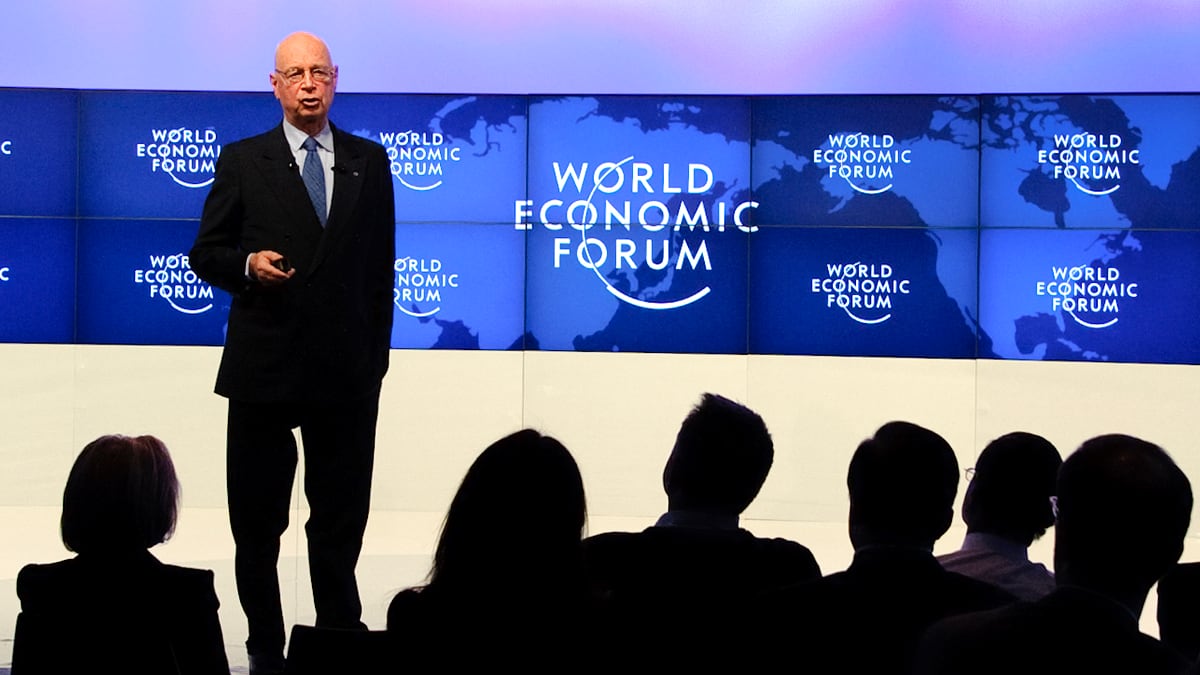Once upon a time, not so very long ago, the politicians and corporate executives who gathered among the mountaintops of Davos, Switzerland, saw themselves as masters of the universe. But as they assemble here this week for the annual meeting of the World Economic Forum, that whole old world, like a fairy tale turned monster movie, seems to be well beyond their control.

Europe is wallowing in debt that almost nobody wants to buy. The United States is crawling out from under its toxic finances slowly, very slowly, with so much partisan bickering that its politicians sometimes seem like self-destructive adolescents racing toward a cliff in a game of chicken. Even the new hypersonic engines of global growth—China and India—are slowing down. And as money races from one shaky refuge to another, economic stability seems a distant memory indeed.
But hey, the gloom doesn’t stop there. A just-issued World Economic Forum report tells us that 52 percent of the 345 “global experts” it consulted in government, business, international organizations, and academia believe that in the next few months there will be a major geopolitical event—say, a war (think Iran)—that will add dire new uncertainties to the mix. That’s up from 36 percent predicting variations on doom last quarter.
In fact, the erstwhile masters of the universe are so chastened by the events of the past four years that even the forum homepage concludes “it is hubris to frame this transition as a global ‘management’ problem.” The stated purpose of the meeting this year is not to try to predict the future, or even to shape it, but just to figure out what participants want the future to look like, because they know it will not look like the past.
All this is a far cry from the gospel of globalization that used to dominate the Davos discussions. If markets just kept opening up and money just kept spreading around, all would be well with the world. Except, as we know, things didn’t work out that way.
But let’s not dwell in the past. Let’s look at some practical questions.
For starters, can the euro survive? And for that matter, can Europe as a union? This is not just an economic question, but in many respects an existential one for the world of open markets. Europe was the paradigm, after all; the Common Market would use commerce to build peace where almost every generation for a millennium experienced disastrous wars. And the euro was the tangible expression of that commerce and cause, a currency that transcended Europe’s old borders and drew the continent together. So the idea of reversing course is not an easy one for any European leader to accept. There are too many known unknowns, as Donald Rumsfeld might say, too many consequences that are too easy to foresee or, perhaps better said, too horrible to remember.
So we can expect the Europeans, reluctantly but obstinately, to hold on to their unity and their currency, at least for as long as they’re at Davos. In various ways, with various nuances, German Chancellor Angela Merkel, European Central Bank chairman Mario Draghi, and International Monetary Fund managing director Christine Lagarde all will make that same point.
We should look for an attempt, as well, to appear more cohesive and concerted about the best approaches to stabilizing the global economy and restoring reasonable growth. In the past, coherence was not the forte of the forum. As one frequent participant puts it, “The WEF is like Baskin-Robbins [the American ice-cream chain]: you got 21 different flavors,” or, indeed, more.
From its origins as a management seminar organized by founder Klaus Schwab in 1971, the forum (in the shadow of Thomas Mann’s The Magic Mountain) became the most elite conceivable confab for the high and mighty: the 1 percent of the 1 percent of the 1 percent, as we might look at it today. But, trending with the times, it also developed programs for young global leaders and increasingly opened its doors to nongovernmental organizations and celebrities with causes. The party scene grew and grew, and many a morning session was attended by bleary-eyed veterans of all-night binges.
But as the participants began assembling here Tuesday evening, making their way to the conference center through corridors carved out of two-meter-deep snow, the mood was somber. There will still be cocktails and dinners, of course. But the party, decidedly, is over.




